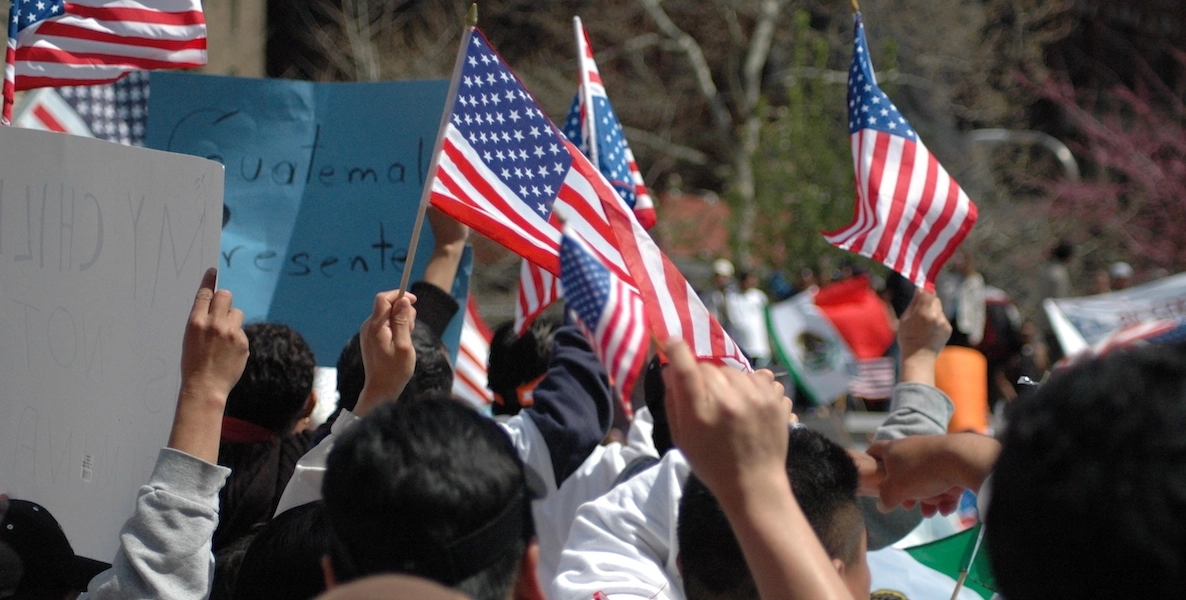Around 250,000 Philadelphians are foreign-born immigrants, according to Pew Research. At about 16 percent (around 246,600 residents) of our city’s population, immigrants have been the fastest-growing cohort of new Philadelphians for the last decade — they are the reason our previously waning population has recently increased.
They are, as Welcoming Center CEO Anuj Gupta wrote in The Citizen last year, 43 percent more likely to start businesses. Some 45 percent earn over $50,000 annually, “contributing to rebuilding a tax base in America’s poorest big city.” Statewide, Gupta notes, immigrants paid over $11 billion in taxes in 2021, a result of another important fact: Nearly 80 percent of PA immigrants are of working age, compared to 61.5 percent of PA’s aging U.S.-born population. And, despite political rhetoric to the contrary, research over the last 100 years has shown that immigrant neighborhoods in America are safer than all other neighborhoods.
By far most Philadelphia immigrants are U.S. citizens, here on work or study visas, have refugee status, or are awaiting an immigration hearing. Some 50,000 Philadelphia immigrants are considered undocumented (out of an estimated 11 million undocumented immigrants nationwide).
Documented or not, U.S. immigrants in 2025 have faced an onslaught of worry, from deportation threats to visa revocations to fears for their children’s safety at school. If you are concerned about their safety or status — or just want to keep Philadelphia growing — you might want to consider supporting organizations in Philadelphia where you can help preserve their American dreams.
Immigrant organizations in Philadelphia — and how to support them
Advocate for immigrant rights and safety
![]()
Understand “sanctuary city.”
In 2016, Philadelphia Mayor Jim Kenney signed an executive order stating “the City of Philadelphia should not comply with detainer requests unless they are supported by a judicial warrant and they pertain to an individual being released after conviction for a first or second-degree felony involving violence.” This order, many said, established Philadelphia as a “sanctuary city.” But “sanctuary city” is an unofficial term that means different things in different places. Here in Philly, it’s a police policy around detainment.
The Citizen’s Roxanne Patel Shepelavy explained it this way: “In essence, the City treats everyone who is arrested the same: Whether documented, undocumented, or a citizen, they are released when a judge says to do so — unless another law enforcement agency has a warrant for their arrest.” (Note: Being undocumented is not a criminal offense. It’s civil, and therefore does not merit a judicial warrant.)
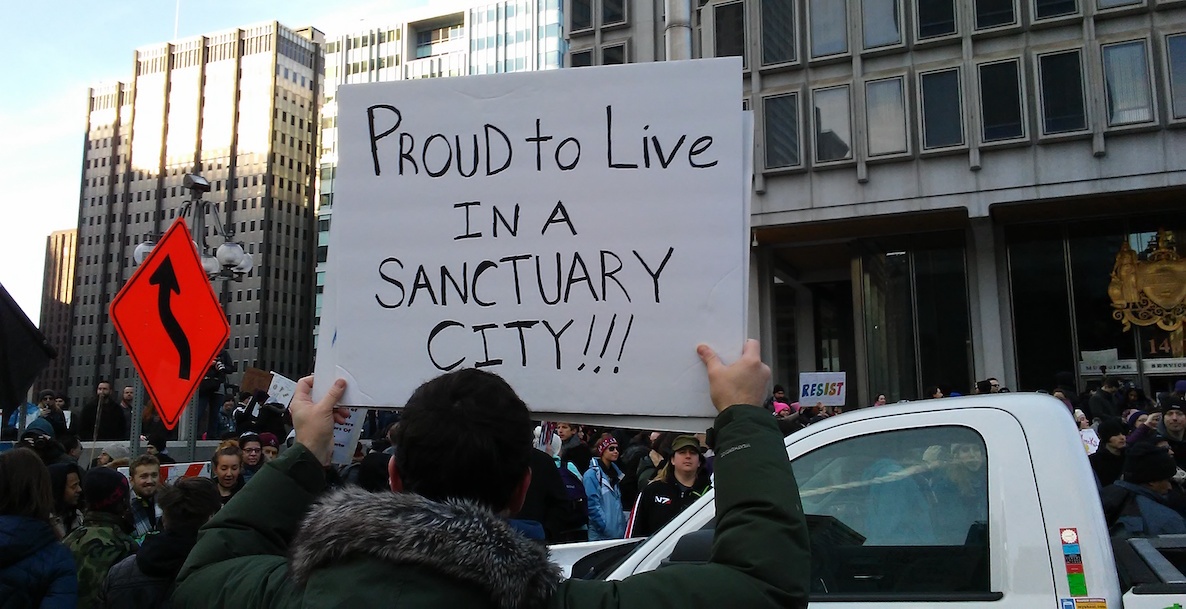
Does that mean undocumented people are safe from I.C.E. in Philadelphia, as long as they don’t commit a crime? Not at all.
By April 2025, I.C.E. had detained Philadelphia residents working at a North Philly car wash, Northeast Philly grocery store, and a beloved couple of South Jersey business owners — all without judicial warrants. Although so far under Trump, detainments have gone up and deportations have gone down (so far) over last year, 2025’s federal Laken Riley Act has opened the door to the possibility of more.
The shift in policy and rhetoric around immigration presents dangers: Immigrants under threat of deportation are less likely to seek help for crimes committed against them. And, since Trump declared churches, schools and hospitals are no longer protected from I.C.E. raids, immigrants who fear arrest are likely to commune, learn and seek medical care less often. Already, one Temple University student has self-deported.
To sum up: The City of Philadelphia can only do so much to protect its residents.
![]()
Philadelphia immigrant organizations to know and support
Juntos: Advocacy and programming for Hispanic Philadelphians
South Philadelphia-based Juntos has served the local Latino community since 2002. Much of Juntos’ work is around activism, community organizing and legislation. They support efforts to close immigrant detention centers, keep I.C.E. out of schools, and end deportations.
Juntos also offers individual services, such as help with landlords, family court filings, public benefit enrollment, tax support, utility activation and food, through Solidarity Bank, their member-led initiative to get food and resources to Philadelphia’s underserved immigrant communities. Juntos gives out food and diapers on Thursdays from noon to 2pm and have created “know your rights” guides in Spanish and English.
For youth, Juntos also offer programming to help build leadership and civic engagement. They are also behind community celebrations, including arts and cultural programs.
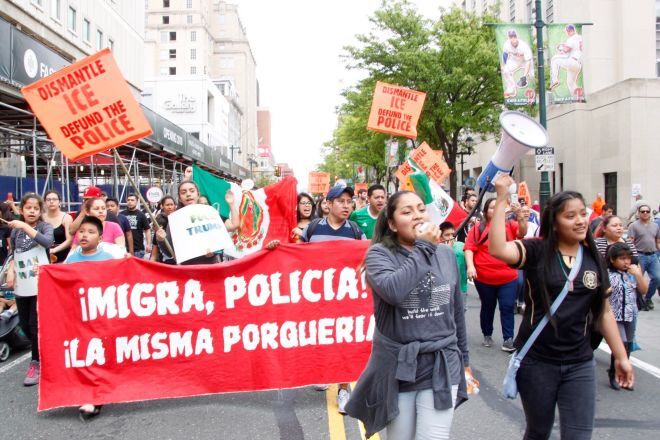
What Juntos needs:
Interns: Juntos has several internship programs: supporting community organizing, youth programming, executive programming, media and community care. All Juntos interns must be bilingual in English and Spanish.
600 Washington Avenue, (215) 218-9079
Facebook, Instagram, Twitter / X
New Sanctuary Movement of Philadelphia (NSM): faith-based advocacy
In 2007 a group of Philadelphia clergy formed this grassroots organization to offer “bold, faith-rooted vision for immigrant justice.” Based in Kensington, NSM spearheads direct action advocacy campaigns — currently, fighting against I.C.E. detentions and advocating for unmarked driver’s licenses (that do not indicate the licensee’s immigration status) in PA, among other immigration-related reforms. NSM have demonstrated in Harrisburg, initiated letter-writing campaigns and established a community fund for bond and legal support.
Their goal: Help build power in these marginalized communities.
What they need:
More voices to help with direct action. Monetary donations.
2601 Potter Street, (215) 279-7060
Facebook, Instagram, Twitter / X
Welcoming Center for New Pennsylvanians: job training and networking
Founded in 2003 by Anne O’Callaghan, who immigrated to the U.S. from Ireland in 1970, this nonprofit focuses on economic opportunities for new arrivals from around the world, offering leadership training, a pathway to join a skilled trade, business planning courses, and classes in English and digital proficiency. The Welcoming Center’s Immigrant Marché (marketplace) sells crafts, food and beauty products made by clients.
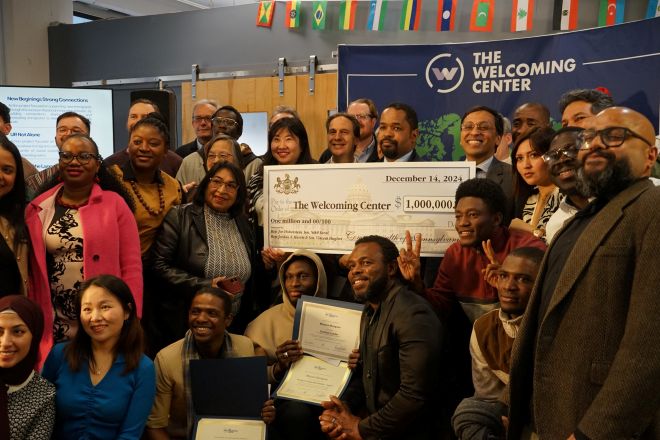
What they need:
211 N. 13th Street, 4th Floor, (215) 557-2626
Facebook, Instagram, LinkedIn, Twitter / X
Nationalities Services Center (NSC): food, healthcare, legal protection, ESL, housing support
Since 1922, this nonprofit has provided legal protection, refugee reception and placement, community integration, access to physical and mental health and wellness services and opportunities to achieve English proficiency, among other services. Their goal: Build stable futures for individuals and families.
What they need:
Volunteers: To teach and tutor English, prepare (and deliver?) home-cooked meals, help set up new housing. They also hire interns to help run their large resource base.
Goods: Gift cards and hygiene products are some of the in-kind donations the NSC accepts every Wednesday from noon to 3pm at their office at 1216 Arch Street.
Workers: They also offer a Year of Service opportunities for qualifying seniors (ages 55 and up), Americorps VISTA positions, along with ESL instructors, community service coordinators and more.
1215 Arch Street, (215) 893-8400
Facebook, Instagram, LinkedIn, Twitter / X
Hebrew Immigrant Aid Society (HIAS) Pennsylvania: social services and legal support
Founded in 1882 to serve Jewish refugees, HIAS has since expanded to “welcome the stranger.” From 2023 to 2024, the HIAS served 6,373 clients and provided 12,831 legal and social services (ESL, after-school mentoring, refugee resettlement, and all manner of legal support — asylum, family unification, protection against abuse) to individuals from 138 countries.
What they need:
Volunteers: HAIS volunteer needs include: pro bono attorneys, airport greeters, delivery drivers, meal preppers and grocery shoppers, translators and interpreters. HAIS also provides advocacy resources on their website for those hoping to enact change by calling legislators and starting discourse on immigration rights.
Donations: While refugee arrivals are suspended, HAIS cannot accept donated household items and recommends inquiring with their nonprofit partners about making in-kind donations. HIAS does, however, accept. monetary donations,
123 S. Broad Street, Suite 950, (215) 832-0900
Facebook, Instagram, LinkedIn
SEAMAAC (Southeast Asian Mutual Assistance Association Coalition): health, wellness, elder and youth outreach, community spaces
Having expanded its original mission in 1984 to serve a specific refugee population, SEAMAAC now serves a variety of needs in different locations, mostly between Pennsport and S. Broad Street in South Philadelphia. They partner with Jefferson Health on the Wyss Wellness Center on S. 8th Street, focus on outreach to community elders, give away food and clothing, support after-school programming at Furness High School, offers domestic and family violence services to individuals and in workshops, and is behind revitalizing Mifflin Square Park and the S. 7th Street corridor while maintaining affordable housing nearby.
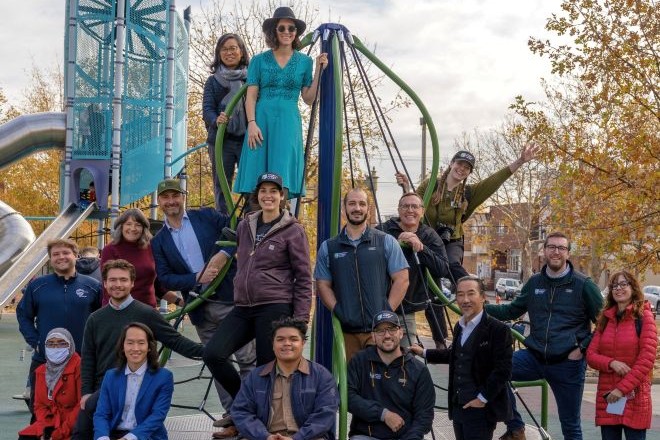
What they need:
Volunteers: Especially multilingual, to help with: toy drives, food pantry and distribution, monthly neighborhood clean-up, voting rights, community gardens.
Donations: Monetary, which you can designate for specific programs.
1711 S. Broad Street, (215) 467–0690
Facebook, Instagram, Twitter / X
 Legal Services
Legal Services
In addition to Nationalities Services Center, HIAS and Juntos, these Philadelphia nonprofits specialize in legal issues surrounding immigration:
Community Legal Services (CLS)
Established in 1966, Community Legal Services offers free civil legal services to all low-income Philadelphians, including immigrant workers. Their specialities: representing workers in wage theft cases in Philadelphia Municipal Court, and representing workers who’ve been harassed or discriminated against in their places of work — including receiving unfair treatment because of place of origin or language. CLS does not handle worker compensation cases, but does direct clients to attorneys who do.
The group also works to change policy and provide community education around issues that greatly affect low-income Philadelphians, including housing, youth justice, rowhouse protection, medical-legal help, right to counsel and record-clearing.
What they need:
Monetary donations. Legal interns and fellows.
1424 Chestnut Street, ( 215) 981-3700 and 1410 W. Erie Avenue, (215) 227-2400
Facebook, Instagram, LinkedIn, Twitter / X
Catholic Social Services (CSS) Immigration Legal Services
This long standing organization — dating back to 1797 — offers a variety of services, including a full complement of low-cost legal help for immigrants and refugees. These include naturalization and citizenship, asylum, family-based petitions, employment and travel authorization, Green Card replacement and renewal, relief for victims of serious crimes, including domestic abuse, deportation defense, and representation before both the immigrant court and the Board of Immigration Appeals.
CSS accepts “all persons regardless of their religion, sexual orientation or gender identity, political opinion, national origin or ethnicity.” They do not, however, handle detention cases.
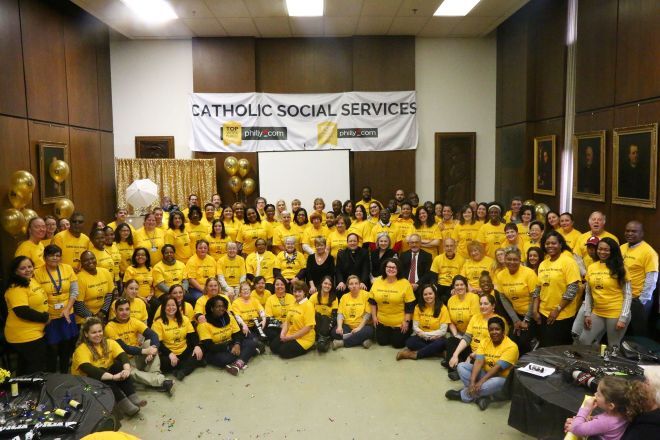
What they need:
Volunteers to: Help clients prepare for citizenship test, answer intake phones, Monday through Wednesday from 9am to 1pm, do legal research for asylum applicants, interpret, work at various food pantries across Philly.
Open Monday through Wednesdays from 9am to 1pm. Walk-ins not accepted.
222 N. 17th Street, Suite 901, (215) 854-7019 (English or Spanish)
Justice at Work
Formerly Friends of Farmworkers, this local and Pittsburgh-based nonprofit has a staff of attorneys and paralegals to assist with workplace issues — discrimination, unpaid wages and wage theft, labor trafficking, and other workplace exploitation — and immigration issues, including notario fraud. Justice at Work serves immigrant and low-wage workers in PA. They’ve existed for upwards of 45 years.
Justice at Work also organizes community education and advocacy.
What they need:
990 Spring Garden Street, Suite 300, (215) 733-0878
Pennsylvania Immigrant Coalition (PICC): Clearinghouse for immigrant support orgs
Above list too long? Reach out to this almost 20-year-old coalition of community groups, legal service providers, healthcare organizations, labor groups, and faith communities to find out what work needs to be done most urgently, and where you might fit in. Some of PICC’s overall efforts: Nonpartisan voter registration, new citizen civic education. They also publish a list of essential resources for immigrants.
What they need:
Volunteers: to phone bank, support get out the vote efforts and direct action (protests, trips to Harrisburg), perform data entry, create art or graphics.
1900 Market Street, Suite 800
Facebook, LinkedIn, X / Twitter
 Advocate on your own
Advocate on your own
Call your legislators.
We can’t say this enough: Phoning your legislators is the most effective way to tell your elected representatives what you want them to do. For Pennsylvanians, this means reaching out to your one U.S. representative and both U.S. senators (John Fetterman and Dave McCormick).
Calls work better than petitions, emails, snail mail or social media (although face-to-face time with your congresspeople is great too, via town halls, office visits and events). Why? According to one U.S. Senate senior staffer, every day, phone answer-ers report out to their bosses on the three most called-about topics at both local and Washington, D.C. offices. Volume matters.
This comic provides comprehensive, step-by-step instructions on how to start the call — including a sample transcript and tips. Find contact details of all your federal, state and local elected officials here.
Calling is quicker and easier than you might think. No worries if you’re nervous at first. By the time you end the call, you’ll feel relieved and empowered.
March
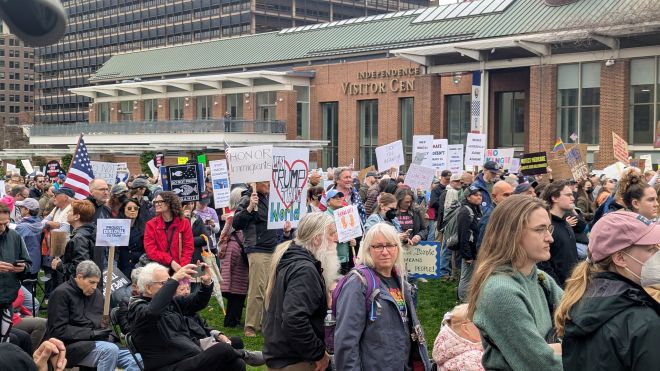
Follow the above groups on your preferred social media platform for updates on protests and direct actions, especially:
Juntos: Facebook, Instagram, Twitter / X
New Sanctuary Movement of Philadelphia: Facebook, Instagram, Twitter / X
Check in with your immigrant or undocumented friends
Imagine not knowing how to plan for your future. Hiding for fear of deportation. Worrying about your family and education. Being harassed for your skin color or accent. That’s what many immigrants are dealing with today. Ask how they’re doing. Lend an ear without interrupting. Give them your unwavering support. A text, call or a get-together can go a long way.
Patronize immigrant-run businesses
Immigrants live, work and operate businesses in every Philadelphia neighborhood. You’ll find concentrations in the S. 9th Street (formerly Italian) Market, Chinatown, West Philadelphia, Pennsport, along Washington Avenue, Port Richmond, North 5th Street, and the Northeast.
Attend fundraisers
The Welcoming Center’s Solas Awards on April 29, 2025 celebrates individuals in Philly who have helped improve the quality of life for immigrants.
The Nationalities Service Center’s annual fall fundraiser Global Tastes lets you eat your way around the world — and hear speakers making a major difference in Philadelphia’s immigrant community.
![]() MORE ON IMMIGRANTS AND REFUGEES IN PHILLY
MORE ON IMMIGRANTS AND REFUGEES IN PHILLY



